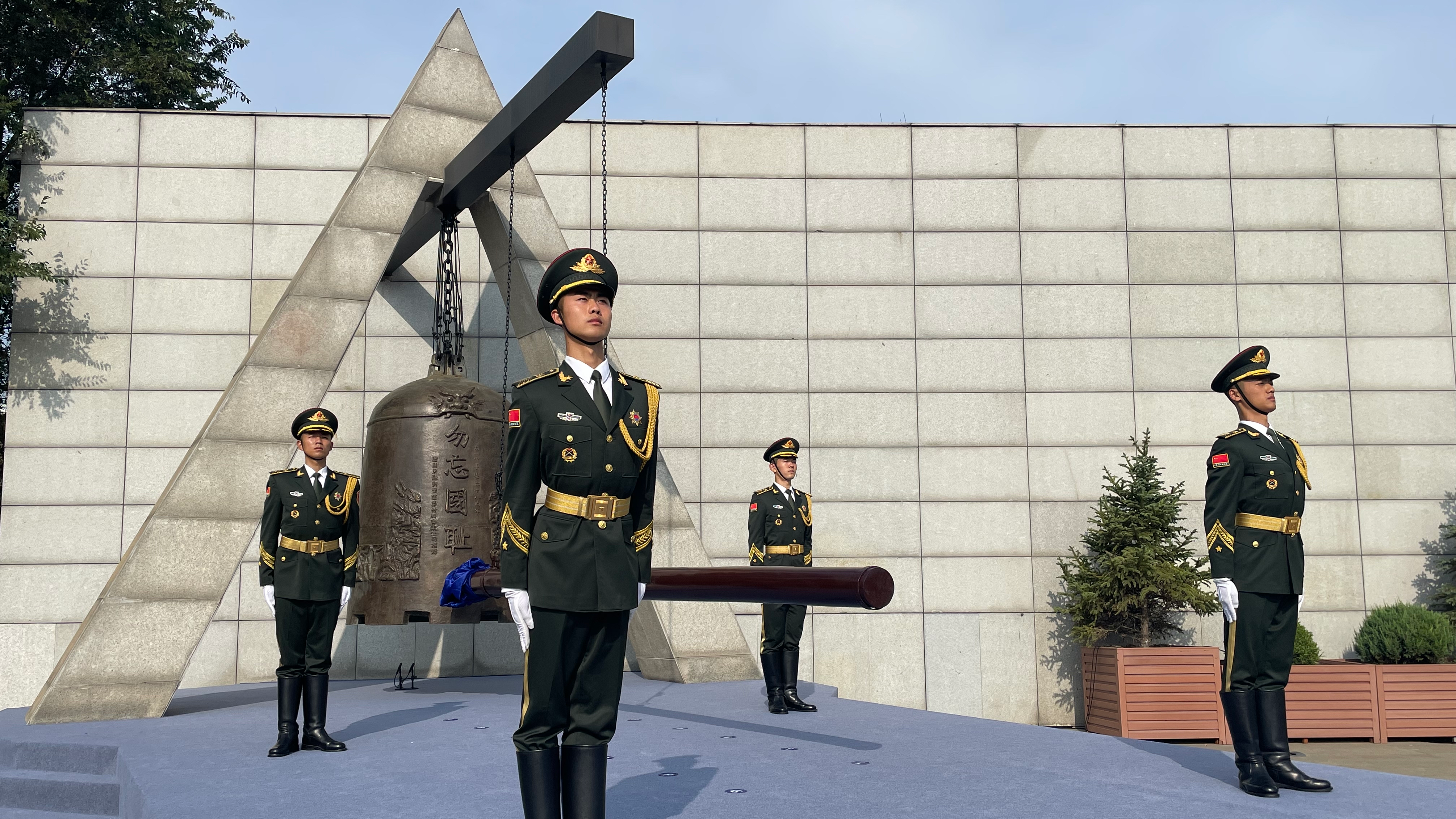
Soldiers strike the bell to mark the 92nd anniversary of the September 18 Incident in Shenyang City, northeast China's Liaoning Province, September 18, 2023. /CGTN
Soldiers strike the bell to mark the 92nd anniversary of the September 18 Incident in Shenyang City, northeast China's Liaoning Province, September 18, 2023. /CGTN
Sirens once again wailed at the 9.18 Historical Museum in Shenyang City, northeast China's Liaoning Province on Monday as China marked the 92nd anniversary of the incident with commemorative activities countrywide.
On September 18, 1931, Japanese troops blew up a section of the railway in Shenyang and accused the Chinese military of doing it. Using the blast as a pretext, Japanese forces bombarded Shenyang on the same night, launching a full-scale invasion of northeast China.
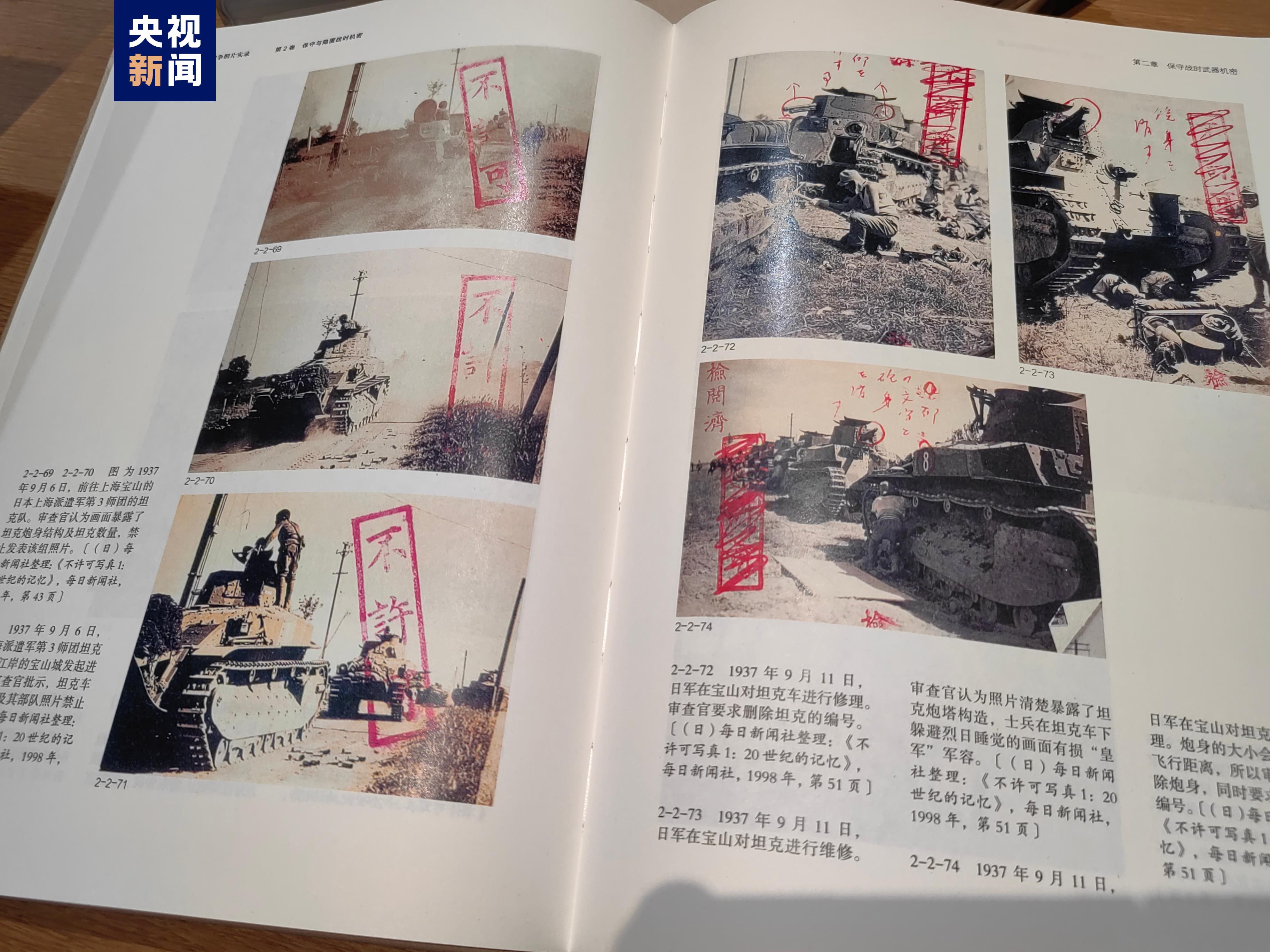
Photos stamped "not permitted" for public publication by Japanese military censors. /China Media Group
Photos stamped "not permitted" for public publication by Japanese military censors. /China Media Group
To help people learn about the history, a book containing 1,407 rare historical photographs was released in Changchun City, northeast China's Jilin Province on Monday morning.
Some of the photographs are newly released, recording the Japanese war of aggression against China from 1931 to 1945 via Japanese people's lens. Those photographs, some stamped "not permitted" for public publication by Japanese military censors at the time, directly present the crimes the Japanese army committed, including occupying Chinese territory and plundering Chinese resources.
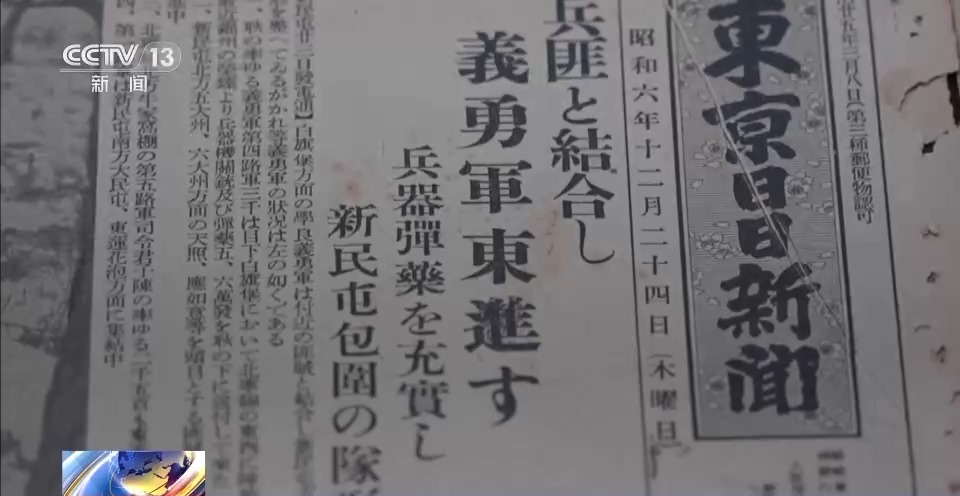
One of the historical materials donated by Zhan Hongge to 9.18 Historical Museum. /China Media Group
One of the historical materials donated by Zhan Hongge to 9.18 Historical Museum. /China Media Group
The 9.18 Historical Museum recently received a collection of precious historical relics donated by Zhan Hongge, a local collector.
The 14 copies of the Japanese Tōkyō Nichi Nichi Shimbun, which recorded the Japanese Kwantung Army launching the September 18 Incident and invading various parts of Liaoning from September 19, 1931 to December 1931, are set to provide important historical and physical evidence for the museum to carry out an in-depth study of the history of Chinese People's War of Resistance Against Japanese Aggression as well as the September 18 Incident.
It's important to educate future generations, so that more young students understand this history, said Zhan.
The museum's collections have expanded thanks to the donation of historical materials by ordinary citizens such as Zhan.
The museum will take good care of the cultural relics and historical materials, carefully study them, and reveal their intrinsic value, said Bai Yu, head of the Office of Collection Management at the museum.
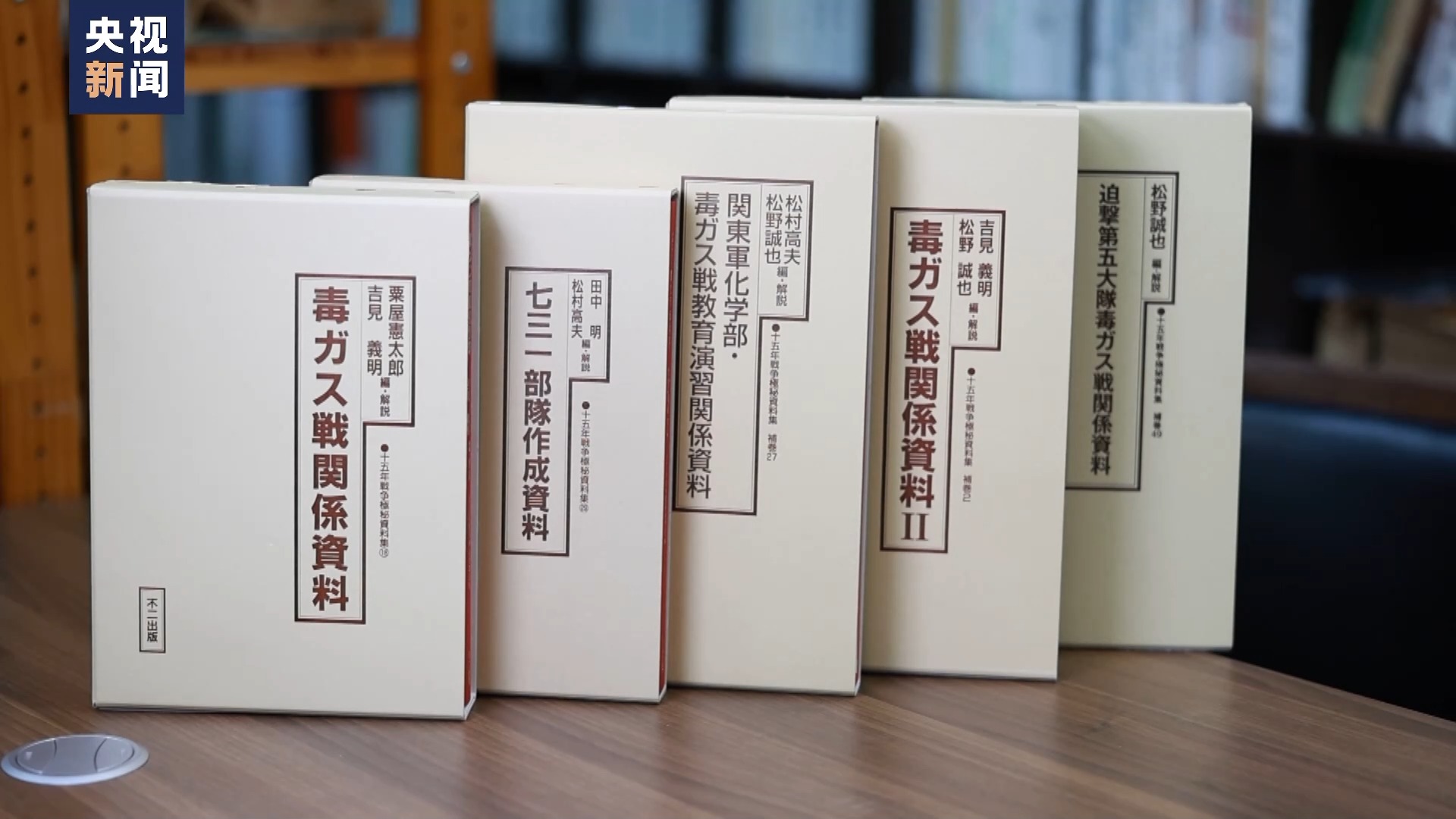
Books about the Japanese army's use of gas bombs. /China Media Group
Books about the Japanese army's use of gas bombs. /China Media Group
In Tokyo, a Japanese publishing house has invested a lot of money and cooperated with some historians to collect and publish historical materials of Japan's War of Aggression against China for more than 30 years, exposing the truth of the war.
Japanese historian Seiya Matsuno is one of the historians the publishing house has cooperated with. In 2019, Matsuno published a book depicting the Japanese army using gas bombs in various parts of China and collected military documents giving orders relevant to gas bombs, in cooperation with the publishing house.
Noting that the book is the first to collect reports on Japanese gas warfare in China, Matsuno said researchers, including himself, are devoted to uncovering the historical truth, copying important materials, and allowing more people to learn and understand what happened in order to form a correct historical understanding.
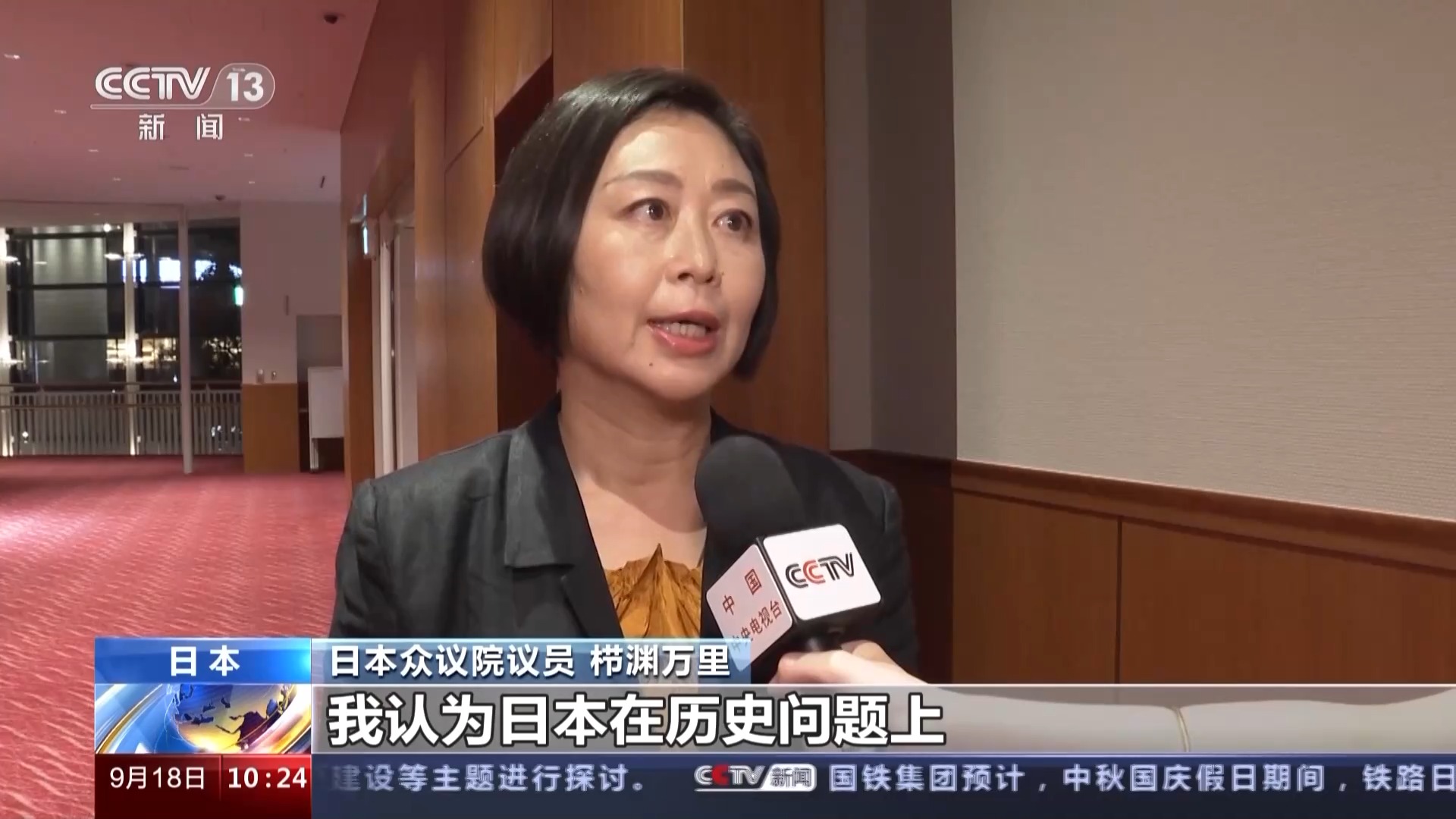
Mari Kushibuchi urges the Japanese government to face the history during an interview. /China Media Group
Mari Kushibuchi urges the Japanese government to face the history during an interview. /China Media Group
A Japanese politician also stressed the importance of facing historical truth. Mari Kushibuchi, a member of the Japanese House of Representatives, has long been committed to urging the Japanese government to face up to history and reflect on its war crimes.
Saying the Japanese government often uses the atomic bombings of Hiroshima and Nagasaki to emphasize its victimhood, Kushibuchi noticed the tragedy has much to do with the past history where the Japanese army invaded Asian countries including China and implemented colonial rule in the regions they colonized.
Noting the Japanese government avoided admitting to that history, Kushibuchi told China Media Group that such acts are an attempt to cover up or distort the historical truth.
She said the falsification of history must not be allowed and added that it is necessary for the Japanese government to acknowledge historical facts, verify them and apologize in order to achieve reconciliation.